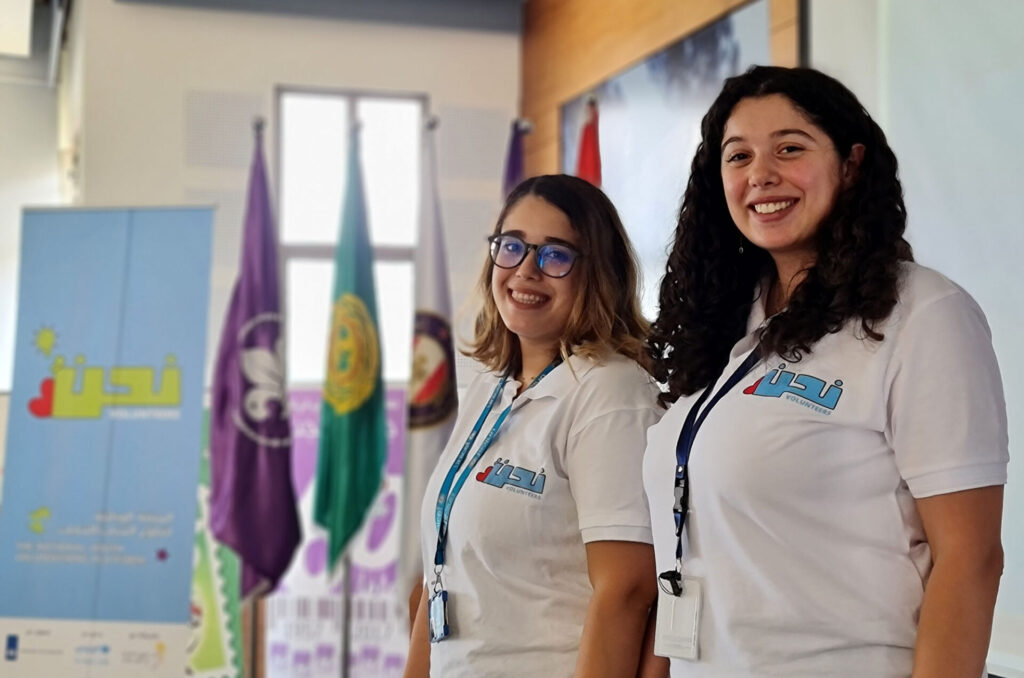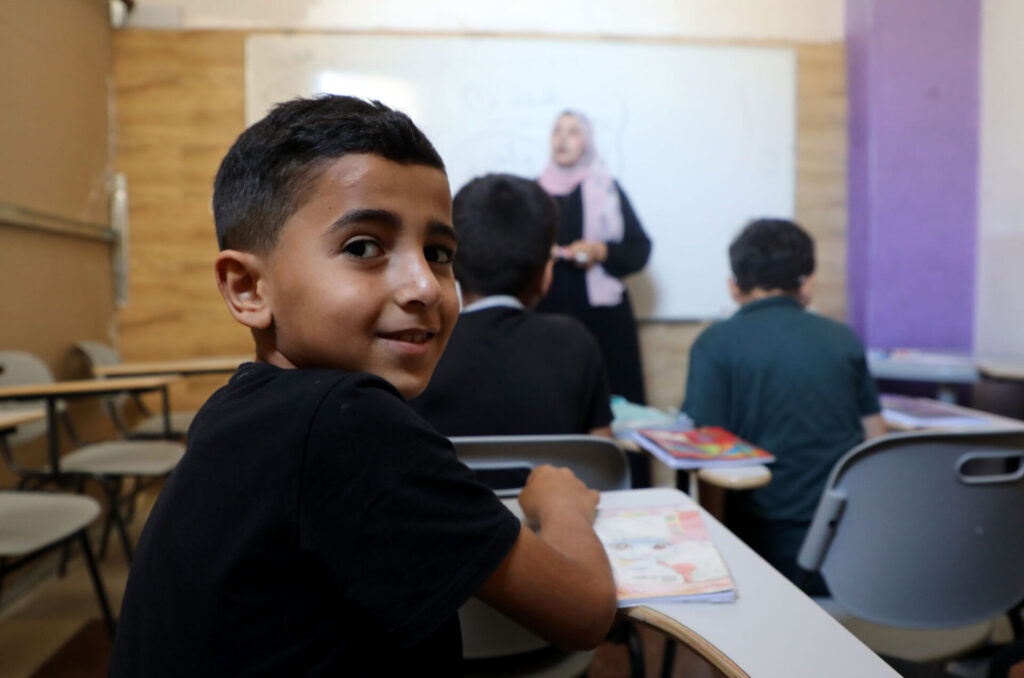Nov, 2021
Job skills training for youth open doors amid high unemployment
A nation’s youth are the architects of its future. That is why UNICEF and Anera have been investing in the development of skill-based competencies while creating income generation opportunities for thousands of youth across Lebanon.
Given the need for skilled labor in water and sanitation construction, UNICEF has created an initiative to train youth on the basics of construction while also addressing infrastructure issues within vulnerable and neglected areas of the country.
As one of UNICEF’s partners in Lebanon, Anera has organized a two-week long accelerated and extensive training at multiple local educational centers across Lebanon.
Anera selected three local partners. Pathways trained 116 youths in Moghairiyeh area to be referred to public works in Ketermaeya and Mazboud towns. Azhar, located in Baissour, trained 174 youths who will be referred to Bsaba and Kafra towns. The third Mount Lebanon partner is Dreams of a Refugee in Shatila Camp, where we trained 84 youths.
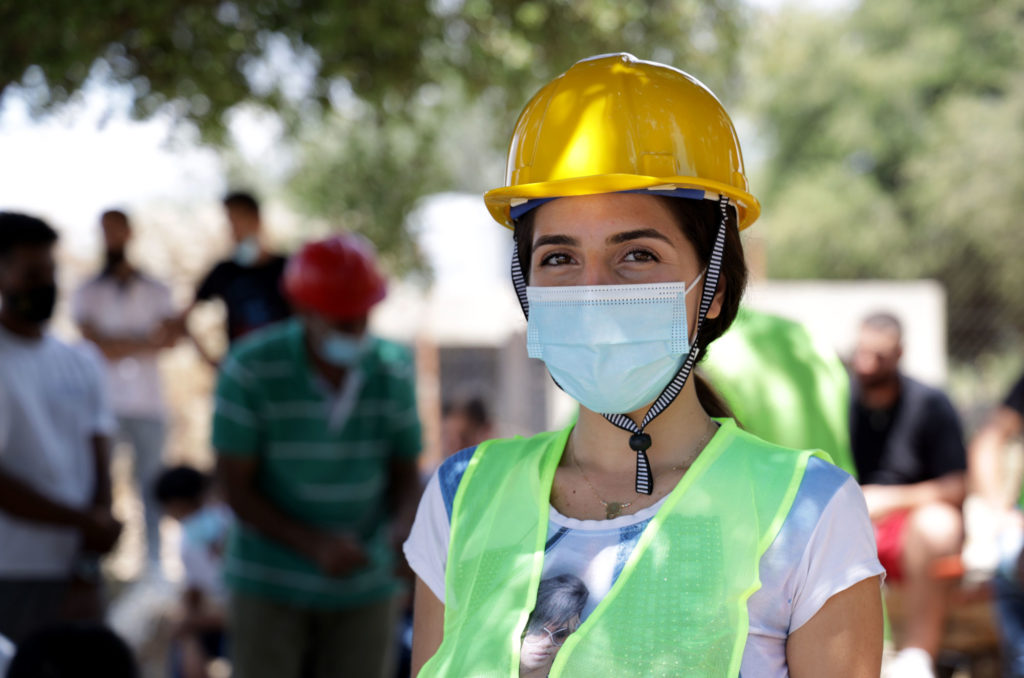

Anera’s training is intended to prepare the youth to be able to use tools proficiently and perform a range of work, including excavations and site preparation, stone bedding, concrete blinding, steel works, meshing and basic plumbing.
After completing the training, the new junior construction experts will be hired by UNICEF’s contractors for forty days of paid work. The students will be constructing reservoirs in multiple towns, installing sewage and wastewater separations. The work will help the struggling municipalities and enhance access to clean water in these communities.
Karen is a 22-year-old Lebanese and resident of B’kaata town. She stumbled upon a social media post about the training and decided to apply. She did so because she is studying interior architecture and construction at the Lebanese University, a profession that her father inherited from my grandfather. Karen and her brothers want to carry their “family’s legacy,” as she describes it, and improve their family business.


“I am aware that in Lebanon, the construction field is dominated by men,” Karen says. “But I believe that women can do anything they want, and no profession should be monopolized by men or women.”
“We are noticing changes regarding the role of women in our Arab communities," Karen says, "and I call on everyone, especially women, to overcome societal and gender obstacles and to be active members of society.”
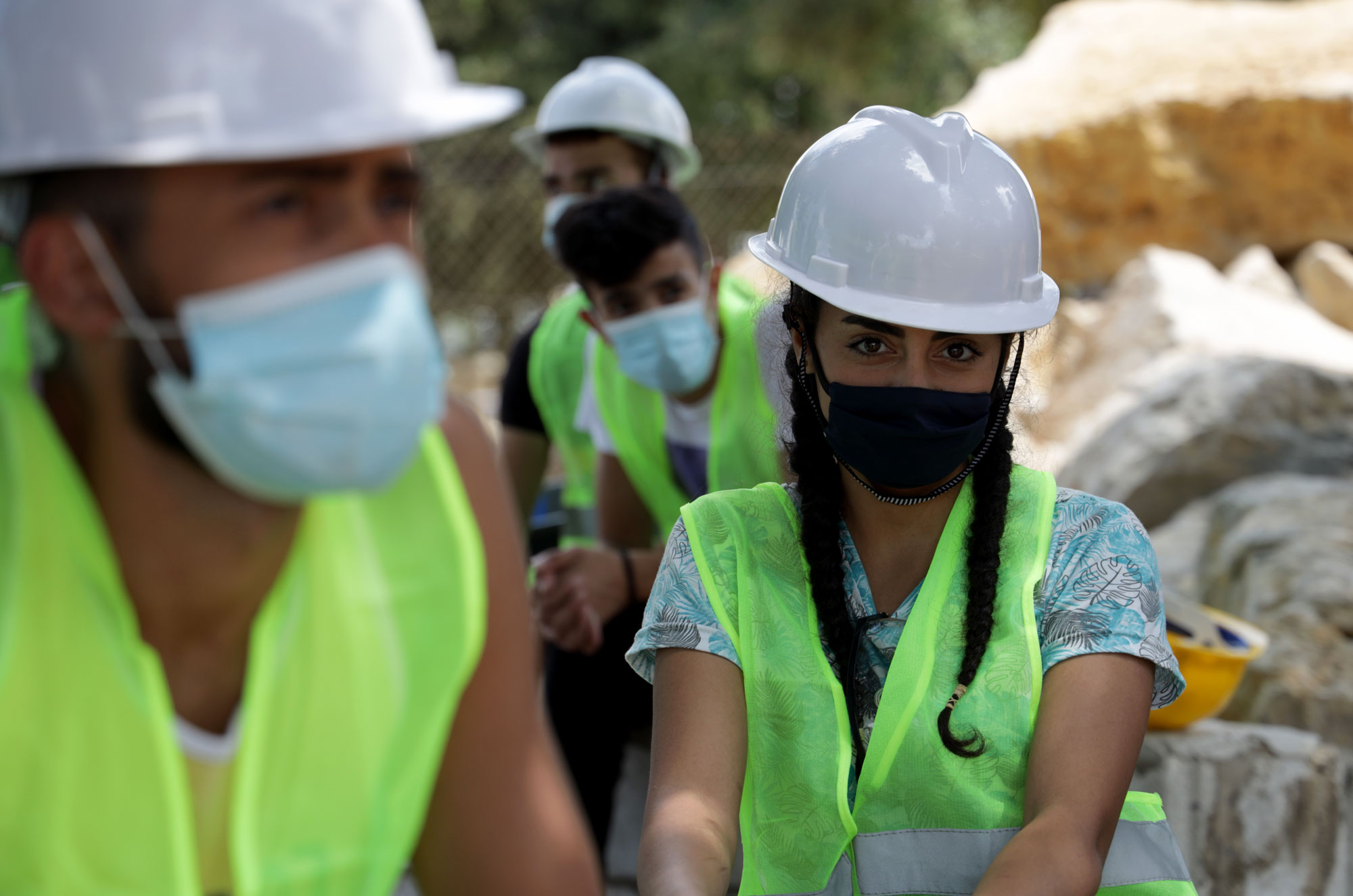

Wiam, 21, is interested in the field of construction because it seems like a good way to make money. Unlike other professions that were affected by the pandemic, there is a constant need for renovations and public works. It is not his dream job. Wiam has a passion for singing and acting and wants to eventually become a performer. But for now he must find a way to make a living.
“Construction is how I'll be able to achieve my dreams. For now I am focused on building a solid career in construction, and this course will help me join a professional construction team.”
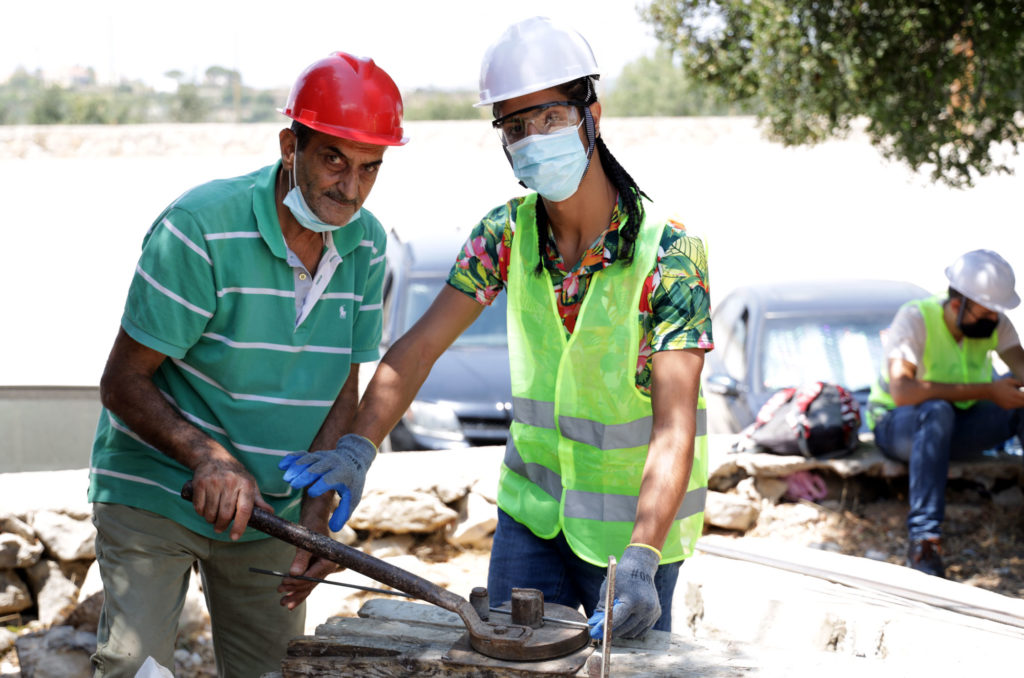



“Construction is how I'll be able to achieve my dreams.”
Everyone involved in this project is aware of how vital it is during this difficult time for Lebanon, and the impact it will have on young people’s lives. Dalia Ghanem, the founder of our partner, Pathways, says,
“In these dark times that our country is going through, this program is a great opportunity for supporting livelihoods. Implementing the project means directly impacting youth and providing work skills that open doors to new work opportunities.”
Hussein Fakih, UNICEF’s WASH specialist on this project, says,
“This program has a two-fold impact: the direct creation of a job that contributes to a family’s economic wellbeing is the tangible impact, and provides the initial attraction of the program for students.
"And then there’s the longer term impact, where the youth gets a chance to practice their vocational education, interact with a real time working environment and with professionals in the field, and deal with colleagues from different communities, thereby fostering social cohesion and building an environment of tolerance.”

